Full Partners
 |
University of Calabria(link: www.unical.it) |
The University of Calabria was established in 1972 in Cosenza (Italy) to spearhead the development of this Italian southern region. Today, UNICAL represents a leader institution of higher formation attracting a significant number of professors, researchers and PhD students from different countries. More than 30,000 students stay in the Arcavacata Campus (the largest in Southern Italy) and in the neighbourhood of the millenary city of Cosenza. The University includes six faculties (Engineering & Material Sciences, Pharmacy and Health Sciences, Mathematical-Physical- Natural Sciences, Humanities & Social Sciences, Economical Sciences and Political Sciences) and 25 Departments. In UNICAL, the R&D and teaching personnel includes more than 2000 units. 15 PhD Courses and 5 PhD Schools are active in the Academic Year 2009-2010, accounting for about 200 positions per year. The University promotes academic research and strongly encourages practical applications at commercial level as a key to economic development in the Calabria. Competences on membrane science and technology are mainly developed at the Department of Chemical Engineering and Materials (http://dicem.unical.it) and at the Institute on Membrane Technology ITM-CNR (www.itm.cnr.it).The Residence Center at the Arcavacata Campus of the University of Calabria provides housing facilities (single/double/multiple rooms) with more than 2800 rooms. Meals are served in three Restaurants located in the Campus. The Campus is served by a Bank, a Post Office, a Health Center (Cosenza Hospital is 10 min far), a theatre, a Police-Immigration Office providing assistance for visas. Sport activities are coordinated by Universitary Sport Center CUS (www.cuscosenza.it). Students with special needs are assisted through facilities provided by “Servizio di Accoglienza Studenti con Disabilità” Center (This email address is being protected from spambots. You need JavaScript enabled to view it.), active since September 1999. |
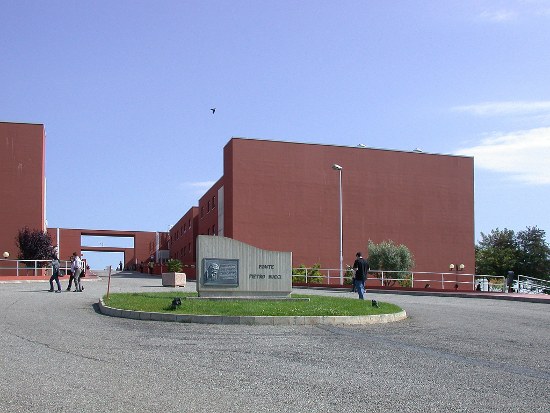 |
 |
Université Montpellier 2 - Sciences et Techniques(link : http://www.univ-montp2.fr) |
The University Montpellier 2 (UM2) is a scientific and technological university occupying a single geographical location on the ‘Mediterranean arch’, favourable to a broad international opening. The offer of scientific, technological and managerial education is diversified (Bachelor, Master, PhD) and is supported by a dynamic and internationally recognized research. The dynamism of its laboratories and a voluntary policy of transfer to industry are important assets for the socio-economic development and the professional insertion of the students. The University is associated through 50 laboratories with the majority of the great national research organizations. These laboratories are gathered within 10 departments of research. 2500 permanent staff and nearly 14,900 students (where 1,030 PhD students) take part in the life of the establishment.The UM2 is distributed through 7 components: a Scientific Educational and Research Unit (Faculty of Science), an Educational and teaching sciences Unit (IUFM), 3 University Institutes of Technology (IUT of Montpellier, IUT of Nîmes, IUT of Béziers) offering 13 specialities, an Engineering School (Polytech' M), and an institute with twin poles in sciences and business administration (Institute of Business and administration, IAE).The R&D in membrane field within the UM2 is mainly performed at the laboratories of the European Membrane Institute (IEM), a ‘Joint Research Unit’ of CNRS also attached to the National Graduate Chemistry School of Montpellier and the University Montpellier 2 (www.iemm.univ-montp2.fr). Information about the accommodation proposed by the University: www.espace-etudiant.com. Meals are served at the university restaurant. Sport activities are organized by Service Universitaire des Activités Physiques et Sportives SUAPS( This email address is being protected from spambots. You need JavaScript enabled to view it.). More than 30 student associations are active in the Campus; for information: Service Commun Universitaire d'Information et d'Orientation (SCUIO) (This email address is being protected from spambots. You need JavaScript enabled to view it.). ADUM : Directory of the current and former students of the Doctoral Schools of the Academy of Montpellier (http://adum.contact.asso.fr). Cellule Handicap de l’ UM2 : This email address is being protected from spambots. You need JavaScript enabled to view it. |
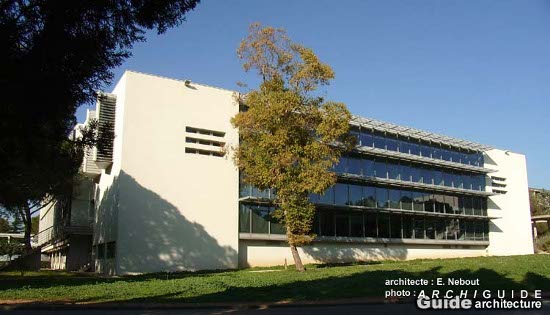 |
 |
Université Paul Sabatier – Toulouse(link : www.ups-tlse.fr) |
The Universitè Paul Sabatier (Toulouse III) was founded in 1229. It is one of the oldest universities in Europe after Bologna, Paris Sorbonne and Salamanca. The university welcomes 29,000 students including 2,500 foreigners (8.5%) through 200 foreign partner universities. The campus offers 400,000 m2 of building (150,000 m2 for research) hosting 2000 teachers, 600 researchers and 1,300 engineers, technicians, administrative staff. This is the third French university in term of number of students (after Paris and Lyon) with 10,600 graduates/year and about 500 PhD. In 2010, paul Sabatier University is partner of three masters Erasmus Mundus (Space master, MESC, TCCM).The R&D activity on Membrane Science and Technology in the EMJD Programme are almost concentrated in two research Laboratories: the Chemical Engineering Laboratory (http://lgc.inp-toulouse.fr) and the Laboratory for Biosystems and Chemical Enginering (http://www.insa-toulouse.fr/fr/recherche/labo/lisbp.html). The staff (more than 230 people) is involved in international educational projects (Sino-French ARCUS project, USTH master creation (Hanoi), Permeant project (USA, Russia, France).The student house is the Crous (http://www.crous-toulouse.com/). This organism manages an important number of universitary rooms, helping also students in finding others accomodations (guest rooms, shared accomodations ...). Two universitary restaurants for students are in the scientific campus, belonging to the Crous (http://www.crous-toulouse.com/). Sport practice (volley, tennus, rugby, soccer…):http://www.ufrstaps.ups-tlse.fr/ . “Cellule Handicap de l’ UPS”: This email address is being protected from spambots. You need JavaScript enabled to view it. |
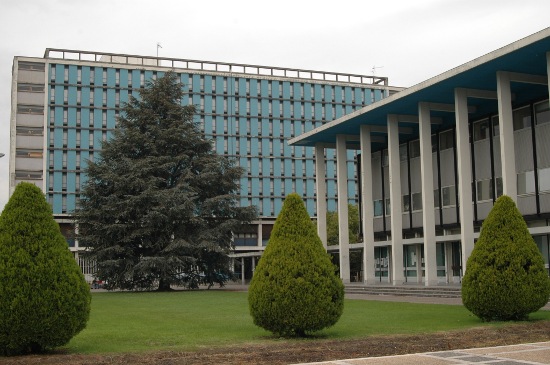 |
 |
University of Twente(link: www.utwente.nl) |
The University of Twente is an entrepreneurial research university. It was founded in 1961 and offers education and research in areas ranging from public policy studies and applied physics to biomedical technology. UTwente is Netherlands' only campus university. Currently the university has over 5400 Bachelor students, 2100 Master students and 800 PhD students. Education (including BSc and MSc) is organized in courses that are allocated in faculties, such as the Faculty of Science and Technology. All MSc courses are taught in English. All research is organized in multidisciplinary research institutes IMPACT, MESA+ and MIRA. R&D activities on Membrane Science & Technology at University of Twente are carried out in three different research groups integrated in a single capacity group at the Department of Science and Technology: Membrane Science and Technology, Inorganic Membranes, Membrane Process Technology.International Office/Housing helps international students in finding accommodation by coordinating supply and demand ( This email address is being protected from spambots. You need JavaScript enabled to view it.). PhD students and employees should contact the Personnel Department of Foreign Affairs (http://www.utwente.nl/pao/en/) in order to arrange the visa and residence permit. The campus of the UTwente offers a variety of services: psychologists, a medical centre, counsellors, religious services, a hotel, restaurants, bars, etc. For special needs:http://www.utwente.nl/studentenbalie/en/ |
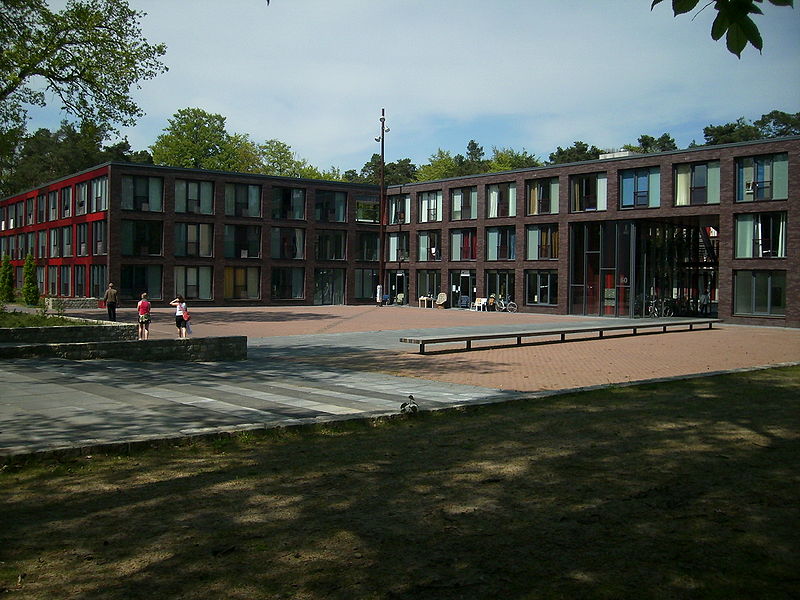 |
 |
Institute of Chemical Technology Prague(link : www.vscht.cz) |
ICTP, founded in 1952, provides education and pursues scientific, research, development and implementation activities. It is a member of EUA (European University Association), FEANI (European Federation of National Engineering Associations) and IGIP (Gesellschaft für Ingenieurpädagogik). It is known for its educational and research activities in almost all branches of chemistry. The ICTP comprises 780 staff, including about 60 professors, 100 associate professors, and 220 assistant professors and assistants. The Faculties of the ICTP are accredited to provide 3-year Bachelor programmes, 2-year Master programmes and PhD programmes. The total enrolment is about 3100 Master and Bachelor students and 880 PhD students. The ICTP cooperates with more than 150 universities and institutions mostly in Europe, but also in the USA, Canada, Japan. The ICTP is the most active among Czech universities in the ERASMUS programme (120 incoming students, 60 out coming, 130 Erasmus Agreements).Membrane related R&D activities are carried out at the Department of Inorganic Technology, also in cooperation with the Institute of Macromolecular Chemistry and the Heyrovsky Institute of the Physical Chemistry. ICT Prague offers accommodation services in its halls of residence (http://www.vscht-suz.cz/suz/eng/recreationfacilities/default.asp). The ICT Prague Halls of Residence offer facilities for a wide range of students' leisure time activity, including student clubs, fitness centres, tennis courts, darkroom, etc. Voluntary sport-courses organised by the Department of Physical Training focusing on the broad range of sports; participation of students is for free. Training and recreation facilities in Jachymov and Pec pod Snezkou (http://www.vscht-suz.cz/suz/eng/recreationfacilities). On-site assistance for special needs. |
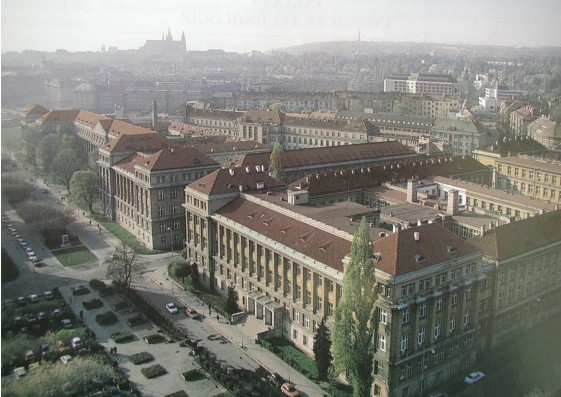 |
 |
Katholieke Universiteit Leuven(link : http://www.kuleuven.be ) |
KULeuven, founded in 1425, is Belgium’s largest university. As a leading European research university, it offers a wide variety of academic programmes in Dutch and English (more than 60 master programmes are taught in English), supported by high-quality interdisciplinary research. The Leuven Doctoral Schools of Science, Engineering and Technology, the Biomedical Sciences and the Humanities and Social Sciences organise the international PhD tracks of close to 3500 doctoral candidates.Top ranking European research universities like K.U.Leuven have clearly taken their rightful place in the minds of students. With its research output it belongs to the top five in Europe as well as for participation in European research projects. The membrane research group of Prof. Vankelecom was founded in 2001 and has now grown to a group of about 25 researchers. Main focuses are on membrane development, new characterization methods and applications.K.U.Leuven has a long-standing tradition of hospitality towards students and scholars from abroad. Once in Leuven and settled in a temporary guestroom, international students/guests are welcome to come to the Housing Service where they will be given information and guided through the procedure to find housing. ( This email address is being protected from spambots. You need JavaScript enabled to view it.). An impressive sports accommodation is available at K.U.Leuven (http://www.kuleuven.ac.be/sports/index.htm). The Medical Centre for students is staffed by a team of doctors with extensive experience. Dedicated facilities to students with special needs:This email address is being protected from spambots. You need JavaScript enabled to view it. |
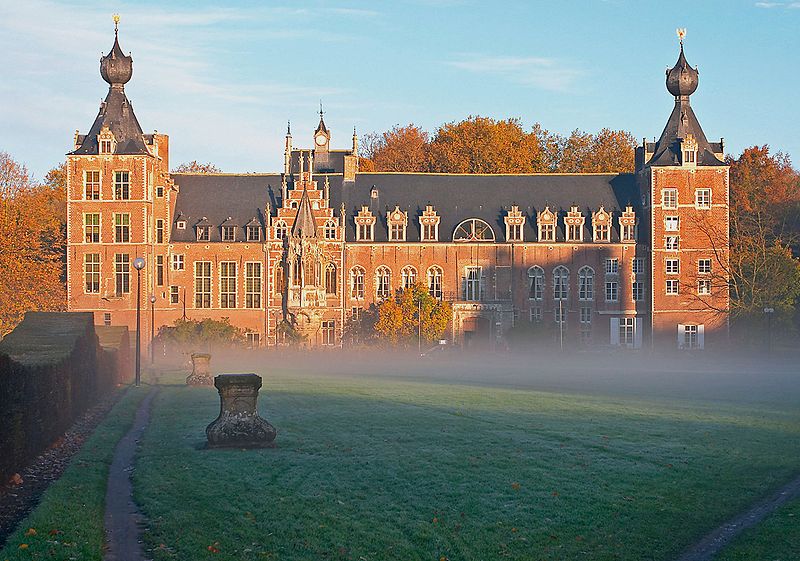 |
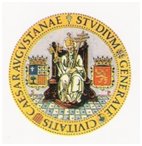 |
Universidad de Zaragoza(link: http://www.unizar.es/) |
The University of Zaragoza was officially founded in 1583. Today UNIZAR is one of the 50 public universities in Spain: its 20 Faculties and technical schools are distributed in several campuses. UNIZAR currently has over 3200 professors and researchers, 1700personal for administrative services and laboratory technicians. There are over 30000 students, in the academic year 07/08, 1865 where PhD students.The postgraduate studies at the University of Zaragoza related with the PhD in membrane engineering correspond to the PhD in Chemical and Environmental Engineering. The University of Zaragoza and the Institutes of Nanoscience and Materials Science of Aragón (INA and ICMA) have exceptional materials preparation and characterization equipment, including some unique instruments in Spain and Europe. The international cooperation activities in the field of Membrane Engineering include: the European Network of Excellence Nanomempro and the “Red Iberoamericana del Hidrógeno” .Contact: This email address is being protected from spambots. You need JavaScript enabled to view it. |
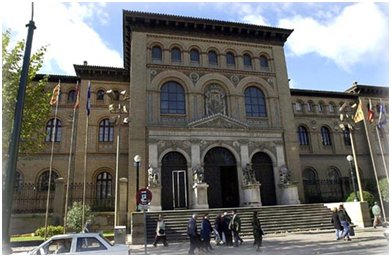 |
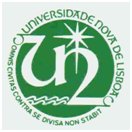 |
Faculdade de Ciências e Tecnologia Universidade Nova de Lisboa(link: www.dq.fct.unl.pt ) |
UNL was founded in 1973 and includes 5 Faculties, 3 Institutes and 1 School. The Faculdade de Ciências e Tecnologia envolves 7000 students and 450 professors. It offers undergraduate, Masters and PhD programs in most scientific and engineering areas. R&D activity on Membrane Science and Technology is mostly carried out at the Chemistry Department by the Biochemical and Process Engineering Group. This group integrates the Centro de Química Fina e Biotecnologia, one of the research centres of REQUIMTE, the largest network in Chemistry and Chemical Engineering established in Portugal. It is recognized as the Associated Laboratory for Green Chemistry and Sustainable Processes by the Portuguese Ministério da Ciência e Ensino Superior. Research activity is carried out in collaboration with the Laboratory of Membrane Processes, Instituto de Biologia Experimental e Tecnológica (IBET), which acts as an interface between institutions and industries and as a support to its autonomous knowledge.Contact: Prof. João CRESPO ( This email address is being protected from spambots. You need JavaScript enabled to view it. ) |
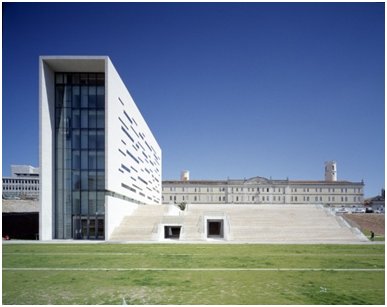 |
 EUDIME - Erasmus Mundus Doctorate in Membrane Engineering
EUDIME - Erasmus Mundus Doctorate in Membrane Engineering